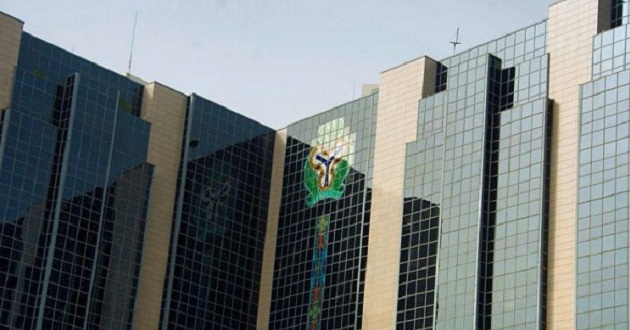Business
CBN raises alarm over Nigeria’s rising debt

The Monetary Policy Committee (MPC) of the Central Bank of Nigeria (CBN) has raised the alarm that Nigeria may return to the pre-2005 Paris Club debt level, if the Federal Government fails to come up with immediate measures to address the rising debt profile.
The MPC stated this on Tuesday in Abuja after its first meeting of the year.
It would be recalled that in October 2005, Nigeria and the Paris Club announced a final agreement for debt relief worth $18bn and an overall reduction of Nigeria’s debt stock by $30bn.
The deal was completed on April 21, 2006, when Nigeria made its final payment and its books were cleared of any Paris Club debt.
Statistics from the debt management office showed that Nigeria’s debt profile as at June 2018 stood at $22.08 billion.
However, key officials of the President Muhammadu Buhari’s administration have consistently dismissed fears raised by Nigerians over the rising debt profile.
Prominent among these Buhari administration officials are the Vice President, Yemi Osinbajo and the Minister of Power, Works and Housing, Babatunde Raji Fashola.
Speaking on behalf of the MPC on Tuesday, CBN Governor, Mr Godwin Emefiele, said that the committee noted the rising debt profile and called for caution.
He said: “On external borrowing, the committee noted the increase in debt level advising for caution, noting that it could fast be approaching the pre-2005 Paris Club level.”
According to Emefiele, the committee noted that while the real Gross Domestic Product grew by 1.81 per cent during the third quarter of 2018, the persistence of herdsmen attacks on farmers, cattle rustling and flooding in parts of the country affected agricultural and livestock output.
He said in view of this, the output for growth remained fragile as the late implementation of the 2018 budget and the residual impact of flooding and security challenges constituted headwinds to growth.
The MPC called for the effective implementation of the 2018 capital budget and the Economic Recovery and Growth Plan in other to stimulate economic activities.
It also hammered on the need for improvements in the security situation in the country as well as continued stability in the foreign exchange market to enhance aggregate demand and growth.
“The committee observed that the near term risk to inflation remain the impact of flooding on agricultural output, insecurity on food producing belts in the country, exchange rate pass through to inflation due to the weakening of oil price and campaign-related spending towards the 2019 general elections.
“Accordingly, the Monetary Policy Committee called on the Federal Government to sustain its efforts towards improving security to ease supply chain bottlenecks.
“The committee recommended that the Federal Government should focus investment on infrastructure and urge the Federal Government to sustain the pace towards addressing infrastructure deficit in Nigeria.
Read also: $5bn Indian line of credit open to Nigeria -Envoy
“It noted that the immediate impact of this on the GDP will be slow in coming but it will expand the economy, reduce unemployment and increase aggregate demand in a more sustainable manner”, Emefiele said.
The MPC also backed the plan by the Federal Government to raise more revenue through Value Added Tax, saying the move would help to reduce pressure on government expenditure.
“The committee also noted the attempts by the government to broaden the base of the Value Added Tax and urge the authorities to expedite action in that effect, arguing that increased tax collection will reduce pressure on government expenditure and create fiscal buffers to improve macroeconomic management,” he added.
On the recent increase in foreign capital inflow into the country despite the political risks, Emefiele said this was based on the confidence of the international community in the country’s macroeconomic management.
He said: “The observed and recent high foreign capital inflow into the Nigerian economy despite the perception of political risks is based on the confidence of the international community in the country’s macroeconomic management and provides a compelling reason for the committee to await clarity on the macroeconomic performance after the general elections in February and March.”
Join the conversation
Support Ripples Nigeria, hold up solutions journalism
Balanced, fearless journalism driven by data comes at huge financial costs.
As a media platform, we hold leadership accountable and will not trade the right to press freedom and free speech for a piece of cake.
If you like what we do, and are ready to uphold solutions journalism, kindly donate to the Ripples Nigeria cause.
Your support would help to ensure that citizens and institutions continue to have free access to credible and reliable information for societal development.






















